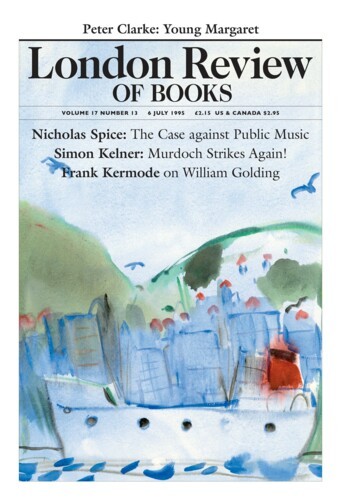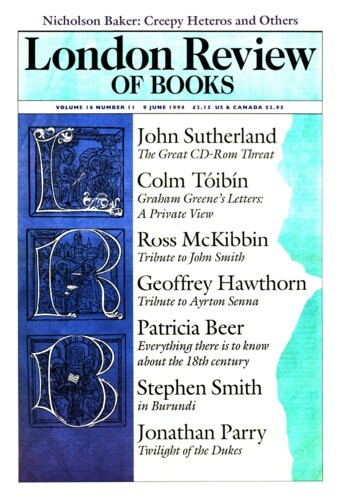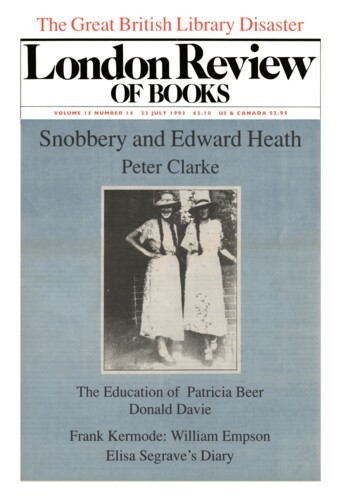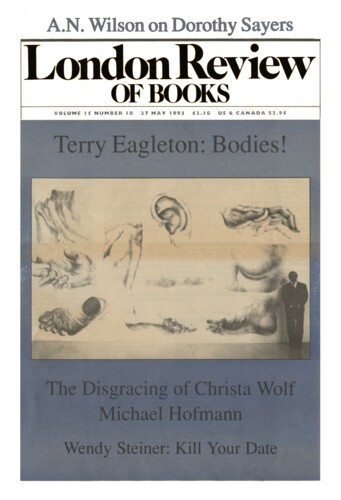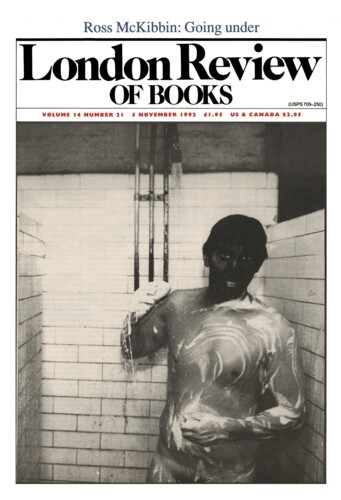Lawful Charm
Donald Davie, 6 July 1995
Barnes’s poems prompt no new questions about poetry, and no new convictions about it. The hoariest truths about poetry will always be new and questionable to some people, especially those (they are many) who think that poetry is a certainty-free zone from which, because ‘the wind bloweth where it listeth,’ all categorical assertions are debarred as dogmatic, as ‘prescriptive’. The most modest reassertion of principles, however time-honoured and well-attested, will fall under this ban, and so it’s to be expected that even poetry so far from challenging as Barnes’s will be found, by some, to ‘raise far-reaching questions’. Moreover, it’s widely thought that poetry by its nature has to be challenging; and so to call Barnes unchallenging will be thought to set him down as inauthentic or at best third-rate. Of course he is neither:
